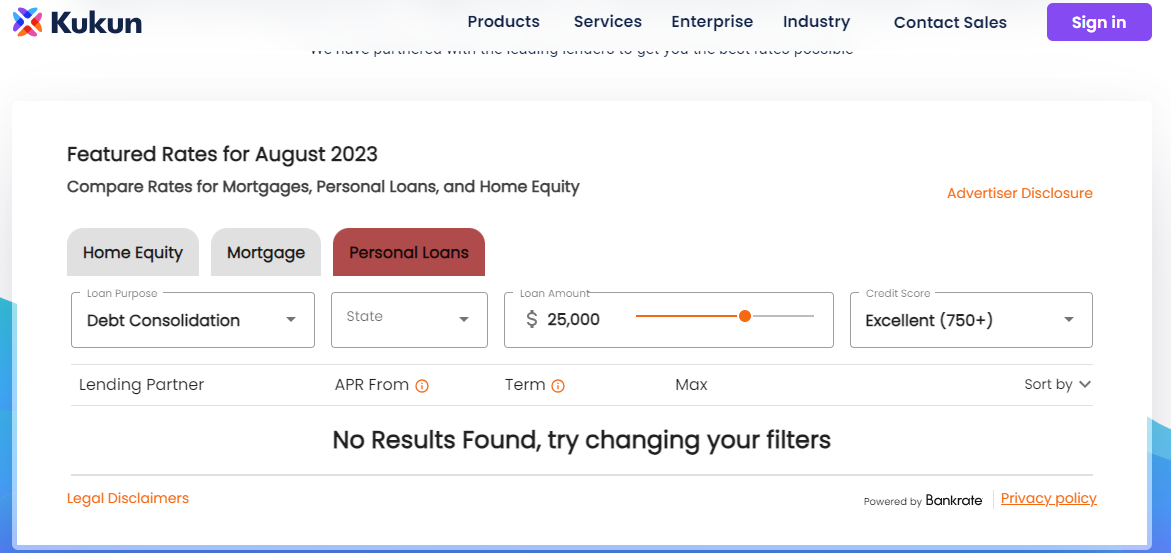Blog Guides Lending and mortgage
Pros and cons of home equity loan on investment property
Updated Wed, Nov 12, 2025 - 8 min read
Top blog articles
Owning an investment property (or many for that matter) presents an excellent opportunity for generating passive income. And, expanding your investment portfolio. However, venturing into real estate investing requires a substantial amount of capital. If you lack readily available funds, you might consider using a home equity loan on investment property. But, is it a smart move? Let’s find out, here.
When considering financing options for a significant purchase, you can leverage the equity you have already built up in your existing property. A home equity loan enables you to access the equity and receive a lump sum payment. And, a home equity line of credit (HELOC) gives you access to a credit line that you can borrow money from during the draw period. While it’s possible to obtain a home equity loan or a HELOC on a rental property, the process might be more complex. Moreover, may come with higher interest rates, making it a potentially challenging decision.
Is it possible to get a home equity loan on an investment or rental property?
Getting access to a home equity loan to buy an investment property or rental home is feasible. Nevertheless, it is crucial to acknowledge that from the perspective of a home equity lender, investment properties present higher risks when compared to primary residences. This is primarily because, in a primary residence, you don’t depend on rental income to repay the home equity loan. Consequently, finding a lender willing to extend a home equity loan for an investment property might prove more challenging. If successful, you should anticipate higher interest rates to offset the perceived risk associated with such transactions.
How to choose between a HELOC or home equity loan?
There are two popular loan options – home equity loans and HELOC – to convert your home equity into cash.
A home equity loan gives you access to a lump sum after closing. It’s an ideal loan type if you know the exact amount of cash you need. For instance, for a home improvement project or a down payment.
On the other hand, HELOC gives you access to a line of credit for an extended period. It’s a good choice if you are uncertain about the amount of funds you need for ongoing maintenance or rental property repairs.
While a home equity loan comes with fixed interest rates, a HELOC typically has variable interest rates, which means the interest can fluctuate over time.
The similarity between a HELOC and a home equity loan is that both options require your home as collateral. And, if you fail to make payments, it could result in the lender foreclosing on the property.
Want help deciding on a home equity loan on investment property?

Keep in mind that, before selecting a loan type, it is crucial to evaluate your financial status, analyze the interest rates and terms provided by various lenders, and ensure that you can handle the loan payments without strain. It’s best to seek advice from a financial advisor to identify the most appropriate choice for your specific requirements.
If you need help deciding on the best home equity loan on investment properties, Kukun Home Lending Tool will make your choice easier. You can find out in detail the various funding options available to you and then make an informed decision for your investment project.
What are the requirements for a home equity loan on investment property?
The criteria for obtaining a home equity loan on an investment or rental property differ depending on the lender. Typically, the following conditions are necessary:
- Minimum credit score: 700 or above.
- Maximum debt-to-income (DTI) ratio: 43 percent (occasionally up to 50 percent).
- Maximum loan-to-value (LTV) ratio: 80 percent.
- Reserves: Six to fifteen months’ worth of home equity loan payments.
Is a home equity loan on rental property risky?
Apart from the risks shouldered by the lender, the borrower too takes on some risk. Much like a home mortgage, tapping into your home’s equity exposes you to the possibility of losing the property if you fail to maintain timely monthly payments. Additionally, if the property’s value declines, say in a housing market recession, you could find yourself in a situation where you owe more than the property is worth. It would make it challenging to sell the home if you ever choose or need to do so. Also, when interest rates are high, it can negatively impact property values.
Read more: What is sweat equity?
Are there other financing options for investment properties?
If you want to purchase a new property or cover renovation and repair costs, you could consider these funding options.
- Cash-out refinance: This option involves replacing your existing mortgage loan with a larger one. It provides you with the difference in cash.
- Reverse mortgage: These senior-friendly mortgages enable you to convert your home equity into a lump sum payment, a line of credit, or regular monthly payments over time.
- Personal loan: These loans are unsecured, meaning no collateral is required. And that’s why a personal loan generally comes with higher interest rates compared to other loan options.
- Credit card: While credit cards can be used to cover expenses, they cannot be utilized as a down payment for a property.
Read more: Can home equity boost your real estate portfolio?
What are the pros and cons of a home equity loan on investment property?
Using a home equity loan for an investment property can have both advantages and disadvantages.
Pros
- Access to funds: A home equity loan allows you to tap into the equity you have built in your primary residence, providing you funds for purchasing an investment property.
- Lower interest rates: Home equity loans generally have lower interest rates compared to other types of loans, such as personal loans, making them a potentially cost-effective financing option.
- Tax benefits: In some countries, the interest paid on a home equity loan may be tax-deductible when used for improving the property or investing in real estate, which can lead to potential tax savings.
- Flexibility: You can use the funds from a home equity loan for various investment opportunities, such as buying rental properties, flipping houses, or making property improvements.
Cons
- Risk to your primary residence: When you use your home as collateral for the loan, you are putting your primary residence at risk. If you default on the loan repayment, you could potentially lose your home.
- Loan qualification requirements: Obtaining a home equity loan requires meeting specific criteria, including creditworthiness and sufficient equity in your home. If you don’t meet these requirements, you may not be able to access the funds.
- Increased debt burden: Taking on a home equity loan means adding debt to your existing mortgage. This can increase your financial obligations and potentially strain your monthly budget.
- Market volatility: Investing in real estate carries inherent risks, such as fluctuations in property values and rental demand. If the market conditions change unfavorably, it could impact the return on investment and the ability to repay the loan.
Read more: Should I sell my house now?
Key takeaway

While you can utilize a home equity loan for your investment property, you’ll need to consider the pros and cons of the financial decision. Keep in mind that the loan application process for investment properties is often more complex and longer than for a primary residence. Also, it may be more difficult to find a lender who is willing to take on this risk.
Read more: How to increase home equity
FAQs
Can you use a home equity loan to cover expenses on a rental?
You can use a home equity loan or a HELOC to cover rental property expenses. While home equity loans are ideal for one-time costs, HELOCs are better suited for ongoing upkeep.
Is investing in real estate risky?
Like any other type of investment, real estate too carries risks. For example, the value of the property you’ve invested in may decrease over time. Or, your rental property could be vacant for long periods of time. Or worse, get damaged by errant tenants.
Is it more difficult to take out a home equity loan for an investment property than for a primary residence?
Due to the increased level of risk involved, obtaining a home equity loan or HELOC for an investment property is typically more challenging compared to a primary residence. The eligibility criteria are generally more stringent with a higher credit score. Furthermore, you need to give evidence of the rental income generated by the property to secure the loan.
Is a home equity loan tax-deductible?
The potential for tax deduction exists if the borrowed funds are utilized for purchasing, constructing, or enhancing the associated property. This deduction is applicable to the accumulated interest on your entire mortgage debt. And, is subject to a specific limit based on your filing status. To capitalize on this tax advantage, itemizing deductions is a requisite step.









